Navigating family law can be overwhelming, especially in Fayetteville, NC. Whether you’re dealing with divorce, child custody, or adoption, understanding your rights and options is crucial. I’ve seen firsthand how these legal matters can affect families, and having the right information can make all the difference.
Fayetteville offers a unique blend of legal resources and support systems tailored to family law. Local attorneys bring a wealth of experience to the table, helping individuals like you find the best path forward. In this article, I’ll explore key aspects of family law in Fayetteville, providing insights to empower you through your legal journey.
Key Takeaways
- Understanding Family Law: Family law encompasses critical issues such as divorce, child custody, alimony, and adoption, making it essential for individuals facing these challenges to be informed about their rights and options.
- Local Resources: Fayetteville, NC offers a variety of resources, including counselors, support groups, and legal aid services, that provide emotional and legal assistance during family law matters.
- Choosing the Right Attorney: Selecting a family law attorney with experience, strong communication skills, empathy, and local knowledge can significantly impact the outcome of legal cases.
- Recent Legislative Changes: Updates to family law in North Carolina have introduced revised alimony guidelines, emphasized joint custody, and streamlined adoption processes, shaping the legal landscape for families.
- Emotional Support Matters: Engaging with counselors and support groups can help individuals and families cope with the emotional aspects of family law issues, fostering better communication and mental health.
- Informed Decision Making: Staying knowledgeable about family law can empower individuals to make informed decisions, encouraging a more favorable and supportive legal journey.
Family Law Fayetteville NC
Family law Fayetteville NC, governs domestic relations and family matters. Understanding this area of law is essential for individuals facing legal challenges related to familial relationships.
Definition and Importance
Family law encompasses legal issues concerning marriage, divorce, child custody, adoption, and support. It plays a crucial role in protecting individual rights and ensuring fair resolutions in domestic situations. An understanding of family law helps individuals navigate complex legal landscapes, promoting informed decisions during difficult times.
Common Issues in Family Law
Common issues in family law include:
- Divorce: Divorce proceedings involve division of assets, spousal support, and potential disputes regarding children.
- Child Custody: Custody arrangements determine where children live and how decisions about their upbringing are made, impacting parents’ rights.
- Alimony: Alimony addresses financial support one spouse may provide to another following divorce, depending on various factors.
- Adoption: Adoption processes ensure legal parent-child relationships are established, requiring compliance with state laws and regulations.
- Domestic Violence: Cases of domestic violence include protective orders and legal recourse to ensure safety for victims.
Understanding these common issues equips individuals with the knowledge to seek appropriate legal guidance and representation.
Types of Family Law Cases
Family law encompasses various legal matters. Key categories include divorce, child custody, adoption, and guardianship, each with unique considerations and legal standards.
Divorce and Separation
Divorce involves the legal dissolution of a marriage. I recognize that this process includes dividing marital assets, determining alimony, and addressing child custody if children are involved. Separation can occur without formal divorce proceedings, allowing couples to live apart while sorting out their financial and emotional issues. Understanding state laws and requirements can clarify options for filing and mediation during this emotional time.
Child Custody and Support
Child custody determines with whom a child will live and how parental responsibilities are shared. Courts prioritize the child’s best interests, considering factors like the child’s age and the stability of each parent’s home environment. Child support mandates one parent to financially support the child, calculated based on income and needs. I find remaining informed about the guidelines ensures compliance around support obligations and custody arrangements.
Adoption and Guardianship
Adoption is the legal process of establishing a parental relationship with a child who is not biologically one’s own. This process includes several steps, such as home studies and background checks. Legal guardianship, on the other hand, grants an individual the authority to care for a child without terminating parental rights. Understanding the nuances of both processes is essential for those considering adoption or guardianship, ensuring that all legal requirements are met for the child’s welfare.
Local Family Law Resources
Navigating family law issues brings the need for local resources that can provide guidance and support. Fayetteville, NC, offers various counselors, support groups, and legal aid services to assist individuals and families.
Counselors and Support Groups
Counselors and support groups play a vital role in addressing the emotional aspects of family law situations. Options in Fayetteville include:
- Family Counseling Centers: Local centers provide mental health services, focusing on family dynamics and improving communication during legal challenges.
- Support Groups for Divorce: Several organizations run support groups where individuals share experiences, gaining insights and encouragement from others facing similar situations.
- Child-Focused Counseling: Specialized counselors cater to children navigating parental separations, ensuring they receive the emotional support needed during transitions.
Legal Aid Services
Legal aid services offer essential assistance for families needing legal representation and advice. Available options in Fayetteville include:
- North Carolina Legal Aid: This nonprofit organization provides free legal counsel to low-income residents, focusing on family law matters such as custody and domestic violence.
- Local Law Clinics: Some local universities run law clinics that offer free or low-cost legal services, allowing students to gain experience under professional supervision while aiding community members.
- Pro Bono Services: Various attorneys in Fayetteville provide pro bono services for qualifying individuals, ensuring access to legal representation regardless of financial standing.
These resources empower individuals in Fayetteville to seek suitable emotional and legal support, navigating family law matters with confidence and understanding.
Hiring a Family Law Attorney
Choosing a family law attorney in Fayetteville requires careful consideration. Selecting the right attorney can significantly impact the outcome of legal matters.
Qualities to Look for
- Experience: Look for an attorney with substantial experience in family law cases specific to Fayetteville, NC, as local laws and practices may vary.
- Communication Skills: Effective communication is crucial. The attorney should clearly explain complex legal concepts and be responsive to your questions.
- Empathy: Family law matters can be emotionally charged. An empathetic attorney can better understand your situation and provide the support needed.
- Reputation: Research the attorney’s reputation through online reviews, testimonials, or referrals from past clients to gauge their reliability and professionalism.
- Negotiation Skills: A skilled negotiator can advocate effectively on your behalf during settlements, minimizing the need for prolonged court battles.
- Knowledge of Local Laws: Attorneys familiar with local family law nuances can navigate the system more effectively, helping you achieve favorable outcomes.
- What is your approach to handling family law cases? Understanding their methodology reveals how they plan to serve your interests.
- What is your experience with cases similar to mine? This question gauges their familiarity with specific legal challenges you face.
- What are your fees and billing structure? Knowing upfront costs and payment terms helps in budgeting for legal assistance.
- How do you communicate with clients? Clarifying communication methods and frequency ensures you’re informed throughout the process.
- What outcomes can I realistically expect? An experienced attorney should provide a realistic perspective based on case specifics and past results.
- Will anyone else work on my case? Understanding who will be involved ensures transparency and reassurance regarding case handling.
Recent Changes in Family Law in Fayetteville NC
Recent changes in family law in Fayetteville reflect efforts to enhance the welfare of families and adapt to evolving societal norms. Understanding these updates proves crucial for individuals facing family-related legal matters.
Legislative Updates
North Carolina’s General Assembly recently enacted several significant laws impacting family law. Changes to alimony guidelines aim to create consistent standards by introducing specific factors that courts must consider when determining alimony amounts. These factors include the duration of the marriage, the financial needs of the dependent spouse, and the paying spouse’s ability to support themselves while paying alimony. Additionally, new provisions in child custody laws emphasize the importance of maintaining a child’s relationship with both parents, encouraging joint custody arrangements unless circumstances dictate otherwise. Furthermore, modifications to the adoption process streamline procedures, allowing for faster placements while ensuring thorough vetting of adoptive parents.
Impacts on Families
These legislative changes have profound implications for families in Fayetteville. Revised alimony guidelines can lead to more predictable financial support during and after divorce. The emphasis on joint child custody promotes healthier co-parenting dynamics, potentially reducing conflict and fostering strong relationships between parents and children. Streamlined adoption procedures may encourage more families to consider adopting, thereby increasing the number of children placed in loving homes. This interconnectedness of recent legal changes helps families reach resolutions that prioritize the best interests of children and strengthen parental bonds.
Making Significant Difference
Navigating family law Fayetteville NC can be overwhelming but knowing your rights and options makes a significant difference. The local resources and experienced attorneys available are invaluable assets when facing challenges like divorce or child custody.
It’s essential to stay informed about the latest changes in family law to ensure you’re making the best decisions for your situation. Whether you’re considering adoption or dealing with custody arrangements understanding the nuances can empower you on your legal journey.
Taking the time to choose the right attorney will help you achieve a fair resolution and protect your family’s interests. With the right support and knowledge you can approach these sensitive matters with confidence and clarity.



